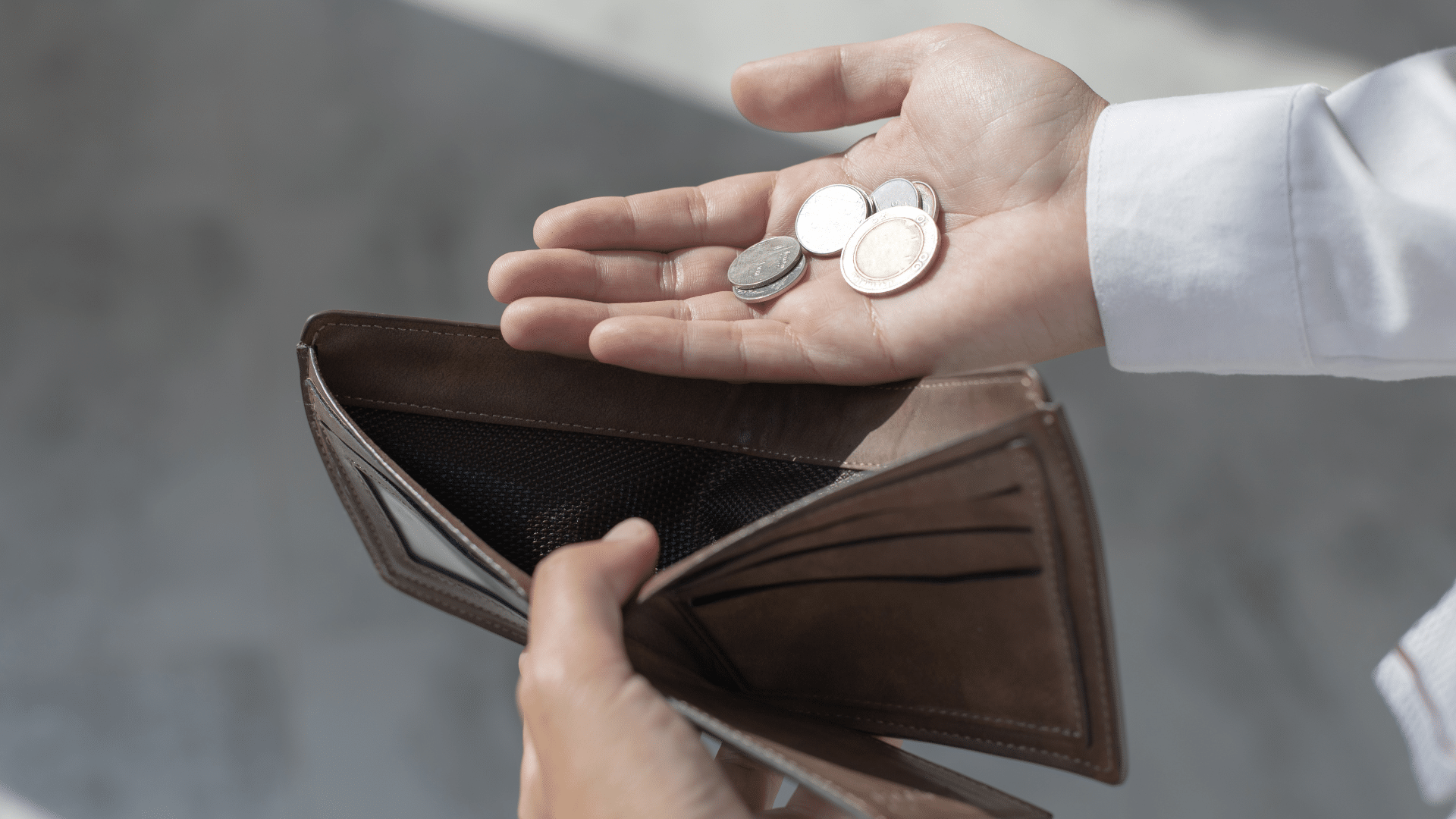How to Get a Loan With Bad Credit Score: Best Loans for Bad Credit

Facing bad credit can feel like a major obstacle when you need a loan, but it doesn’t have to close every door. Many people find themselves needing financial support while navigating the challenges of a low credit score. The key is knowing where to look, what to expect, and how to present yourself as a trustworthy borrower.
By understanding the loan options available for bad credit, preparing your financial profile, and choosing the right lender, you can secure funding even in difficult circumstances. In this article, we’ll walk through how bad credit impacts your loan opportunities, practical strategies to improve your chances, and smart ways to manage borrowing and repayment successfully.
Key Takeaways
- Bad credit doesn’t have to prevent you from obtaining a loan.
- Understanding your credit score can help navigate loan options.
- Many lenders offer specific products for borrowers with bad credit.
- Researching lenders is essential for finding the best loans for bad credit.
- Improving your credit profile may enhance your loan prospects.
Understanding Bad Credit and Its Implications
Bad credit can significantly limit your financial opportunities, but understanding its impact is the first step toward overcoming it. Typically, a credit score below 580 is considered poor and approximately 13% of Americans fall into this category.
A history of missed payments, high credit utilization, or defaulting on previous debts can all contribute to a lower score. Unfortunately, a poor credit rating signals higher risk to lenders, which can make securing loans with favorable terms more difficult.
The Impact of Bad Credit on Loan Approval
Lenders rely heavily on credit scores when evaluating loan applications. With a lower score, you may face several challenges: higher interest rates, lower borrowing limits, stricter repayment terms, or outright denial.
Each lender has its own credit score requirements, and the minimum thresholds can vary widely depending on the loan type and provider. Knowing your credit score and these benchmarks can help you target the right lending options and avoid unnecessary rejections.
Common Misconceptions About Bad Credit
A widespread myth is that having bad credit automatically disqualifies you from borrowing. In reality, while your options may be more limited and the costs higher, there are still lenders who specialize in helping individuals with bad credit.
These lenders often offer personal loans, secured loans, or credit-building products designed to meet the needs of higher-risk borrowers. Although you may pay higher interest rates, responsible borrowing and timely repayment can turn these opportunities into stepping stones toward improving your credit and expanding your future financial options.
How Bad Credit Affects Your Loan Options
Navigating the loan market with bad credit can be challenging, but understanding how your credit score impacts your choices is the first step to finding the right solution. Knowledge of the typical interest rates and available loan types for bad-credit borrowers will help you make more informed decisions.
Interest Rates for Borrowers with Bad Credit
A lower credit score often results in higher borrowing costs. Lenders view bad credit as a greater risk, and this risk is reflected in the form of elevated interest rates. This not only increases your monthly payments but also significantly raises the total cost of the loan over its lifetime. Even small differences in rates can add up to substantial amounts over time, so it’s crucial to consider the long-term impact before accepting any offer.
Types of Loans Available for Bad Credit Borrowers
Even with bad credit, you still have options. But, these options might not be as good as those for people with better credit. Here are some common ones:
- Personal loans for those with bad credit.
- Payday loans for quick cash, but they’re expensive.
- Secured loans that need collateral, which can be safer for lenders.
- Loans from credit unions, which might have better terms than banks.
These loans are available to you, but it’s important to look at the terms closely. Many lenders charge high fees and limit how much you can borrow. Always read the fine print.
Steps to Improve Your Chances of Securing a Loan
Applying for a loan with bad credit can feel daunting, but with the right preparation, you can significantly improve your chances of approval. Taking proactive steps to strengthen your credit profile and demonstrating financial responsibility can make a major difference.
The process starts with understanding your current credit standing, correcting any errors, and exploring additional support options like co-signers.
Checking Your Credit Score and Report
The first step is gaining a clear view of your financial health. Request your free credit reports from the three major credit bureaus—Experian, Equifax, and TransUnion—and review them carefully.
Understanding your credit score gives you insight into how lenders view your creditworthiness. By monitoring your score, you’ll also be better equipped to track your progress as you work toward improving it.
Knowing where you stand allows you to take focused actions that strengthen your loan applications.
Identifying Errors and Disputing Them
Errors on your credit report can unfairly lower your score and potentially cost you loan approval or better interest rates. Look closely for mistakes such as incorrect account balances, outdated payment histories, or accounts that don’t belong to you. If you spot any inaccuracies, file a dispute with the credit bureau immediately. Correcting these errors can result in a noticeable boost to your credit score, often with relatively little effort.
Taking the time to ensure your report is accurate gives you a stronger foundation for any future financial applications.
How a Co-Signer Can Help
If improving your credit score will take time, or if you need funding sooner consider asking a trusted individual to co-sign your loan. A co-signer with strong credit reassures lenders of repayment, significantly increasing your approval odds.
In addition to improving your chances of getting approved, a co-signer can help you qualify for better loan terms, such as lower interest rates and more manageable repayment schedules.
While this is a powerful strategy, it’s important to remember that a co-signer shares responsibility for the loan. Open communication and a solid repayment plan are critical to maintaining trust and protecting both parties’ credit.
Exploring Alternative Loan Options
When traditional lending isn’t accessible, there are still practical ways to secure funding. If you have bad credit, alternative loan options offer a second chance to manage your financial needs without excessive barriers. Exploring these alternatives can help you find a solution that fits your circumstances and long-term goals.
Secured Loans: Using Collateral to Get Approved
Secured loans are backed by an asset you own, such as a vehicle, a savings account, or other valuables, which acts as collateral for the lender. Because the lender has security against potential default, secured loans often offer more favorable interest rates and higher approval odds, even if your credit history isn’t ideal.
While using collateral can increase your chances of approval, it also means you risk losing the asset if you fail to repay. It’s important to borrow only what you can reasonably afford and to have a clear repayment plan in place.
Credit Unions and Community Lenders
Local credit unions and community lenders are often more flexible than traditional banks, particularly when it comes to working with borrowers who have credit challenges. These institutions typically focus on serving their members and communities, offering lower fees, competitive interest rates, and personalized service.
Many credit unions also consider your overall financial picture, not just your credit score, which can work in your favor. Building a relationship with a credit union can provide ongoing access to affordable financial products, not just one-time loans.
Personal Loans for Bad Credit from Online Lenders
Online lenders have expanded access to personal loans for borrowers with varying credit profiles. Many specialize in loans for individuals with bad credit, offering streamlined applications, fast approval times, and flexible funding options.
However, it’s essential to review the terms carefully. Some online lenders charge higher interest rates or fees to offset the risk. Comparing multiple offers and checking lender reputations can help you find a loan that supports, rather than strains, your financial recovery.
Alternative lending options can open doors when traditional paths seem closed. With careful research and responsible borrowing, you can find a solution that meets your immediate needs while supporting your long-term financial health.
Preparing for the Loan Application Process
Successfully securing a loan begins even before you submit an application. Preparation is critical: understanding what lenders expect, organizing your documents, and completing your application carefully can significantly increase your chances of approval. A strategic approach not only speeds up the process but also positions you as a trustworthy borrower.
Essential Documents to Gather
Before starting, gather these important documents:
- Personal identification (e.g., driver’s license, passport)
- Proof of income (e.g., pay stubs, tax returns)
- Employment verification (e.g., employment letter, contact information of your employer)
- Bank statements (to reflect your financial situation)
- Additional financial information (e.g., existing debts, assets)
Organizing these documents early can make the entire process more efficient and reduce the chances of unexpected delays.
How to Complete a Loan Application
Accuracy is essential when completing a loan application. Provide complete, truthful information and follow each lender’s specific instructions closely. Missing details or discrepancies between your application and your supporting documents can cause setbacks or even lead to denial.
Before submitting, review your application carefully to catch any mistakes. If you’re unsure about certain sections, don’t hesitate to contact the lender for clarification. A well-prepared application reflects your professionalism and increases the lender’s confidence in your ability to repay the loan.
What to Expect During the Approval Process
Once your application is submitted, the approval timeline can vary depending on the lender and loan type. Some lenders offer quick, same-day decisions, while others may take several days or even weeks to complete their review.
During this time, lenders may request additional documentation or clarification on certain aspects of your financial profile. Staying responsive and organized can help keep the process moving smoothly. Understanding that approval involves a series of checks, such as credit evaluation, income verification, and risk assessment, can also help you set realistic expectations around timing.
Managing Loan Repayment with a Bad Credit History
Managing your loan repayment is very important, even more so with bad credit. Knowing your loan terms and using smart strategies can greatly improve your finances. By following good loan repayment plans, you can avoid the problems of late payments.
Understanding Loan Repayment Terms
Start by getting to know your loan repayment terms. Note down your monthly payments, due dates, and interest rates. Knowing these details helps avoid late fees and keeps your credit score from dropping.
Strategies for Making Payments on Time
Using effective loan repayment strategies is vital for a good payment history. Here are some helpful tips:
- Set up reminders for due dates to ensure you never miss a payment.
- Consider automatic payments if feasible, as they ensure timely transactions.
- Budget prudently to effectively manage cash flow, allocating funds for loan repayments as a top priority.
Consequences of Missing Payments
Missing payments can have serious effects. The consequences include extra fees and a hit to your credit score. This can make it harder to get loans in the future or lead to higher interest rates.
| Consequence | Description |
| Late Fees | Each late payment may incur a fee that increases your total repayment amount. |
| Credit Score Drop | Late payments can lower your credit score, making future borrowing more challenging. |
| Higher Interest Rates | Future loans might come with higher interest rates due to decreased creditworthiness. |
Conclusion
While borrowing money with bad credit presents real challenges, it’s far from impossible. With the right preparation, you can strengthen your chances of approval. It is very important to understand the terms of any loan you consider. Carefully comparing different lending options that cater to poor credit can lead to better interest rates, lower fees, and repayment schedules that fit your financial situation.
Bad credit doesn’t define your borrowing potential, it simply requires a more thoughtful, informed approach. With persistence and smart planning, you can secure the funds you need and move one step closer to your financial goals.
FAQ
Can I get a loan with a bad credit score?
Yes, it is possible to get a loan with a bad credit score. There are lenders that specialize in bad credit loans, which are designed specifically for borrowers with poor credit histories.
How does a bad credit score affect my ability to borrow?
A bad credit score can limit your borrowing options and may result in higher interest rates. Lenders may view you as a higher risk, which can affect your credit terms and loan offers.
What are the best personal loan options for someone with bad credit?
The best personal loan options for someone with bad credit include secured personal loans, credit unions that offer favorable terms, and online lenders that specialize in bad credit loans. It’s essential to compare personal loan rates and loan offers to find the best fit.
Do all lenders perform a credit check when I apply to get a personal loan?
Most lenders will perform a credit check when you apply to get a personal loan. However, some lenders may offer loans that do not require a credit check, although these options might come with higher fees or interest rates.
What is a secured personal loan and how can it help with bad credit?
A secured personal loan is backed by collateral, such as a savings account or property. This type of loan can help borrowers with bad credit qualify for a loan since the lender has security in case of default, which can also lead to better loan terms.
How can I improve my chances of getting a loan with bad credit?
To improve your chances of getting a loan with bad credit, you can work on improving your credit score by paying down existing debts, making timely payments, and checking your credit report for errors. Additionally, you can consider applying with a co-signer who has a higher credit score.
Are there any loans I can get with bad credit that don’t require a minimum credit score requirement?
Yes, some lenders offer loans that do not have a minimum credit score requirement. These loans are often referred to as bad credit loans and may have higher interest rates or less favorable loan terms.
What should I consider when reviewing loan agreements for bad credit loans?
When reviewing loan agreements for bad credit loans, consider the loan amount, interest rates, repayment terms, and any fees associated with the loan. It’s important to ensure that the loan payments fit within your budget and that you understand the terms fully before signing the agreement.






